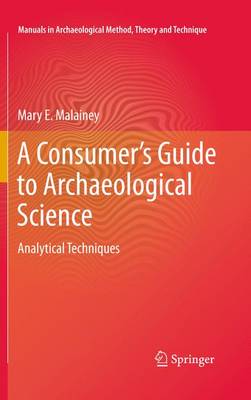Manuals in Archaeological Method, Theory and Technique
1 total work
Many archaeologists, as primarily social scientists, do not have a background in the natural sciences. This can pose a problem because they need to obtain chemical and physical analyses on samples to perform their research. This manual is an essential source of information for those students without a background in science, but also a comprehensive overview that those with some understanding of archaeological science will find useful. The manual provides readers with the knowledge to use archaeological science methods to the best advantage. It describes and explains the analytical techniques in a manner that the average archaeologist can understand, and outlines clearly the requirements, benefits, and limitations of each possible method of analysis, so that the researcher can make informed choices. The work includes specific information about a variety of dating techniques, provenance studies, isotope analysis as well as the analysis of organic (lipid and protein) residues and ancient DNA. Case studies illustrating applications of these approaches to most types of archaeological materials are presented and the instruments used to perform the analyses are described. Available destructive and non-destructive approaches are presented to help archaeologists select the most effective technique for gaining the target information from the sample. Readers will reach for this manual whenever they need to decide how to best analyze a sample, and how the analysis is performed.
